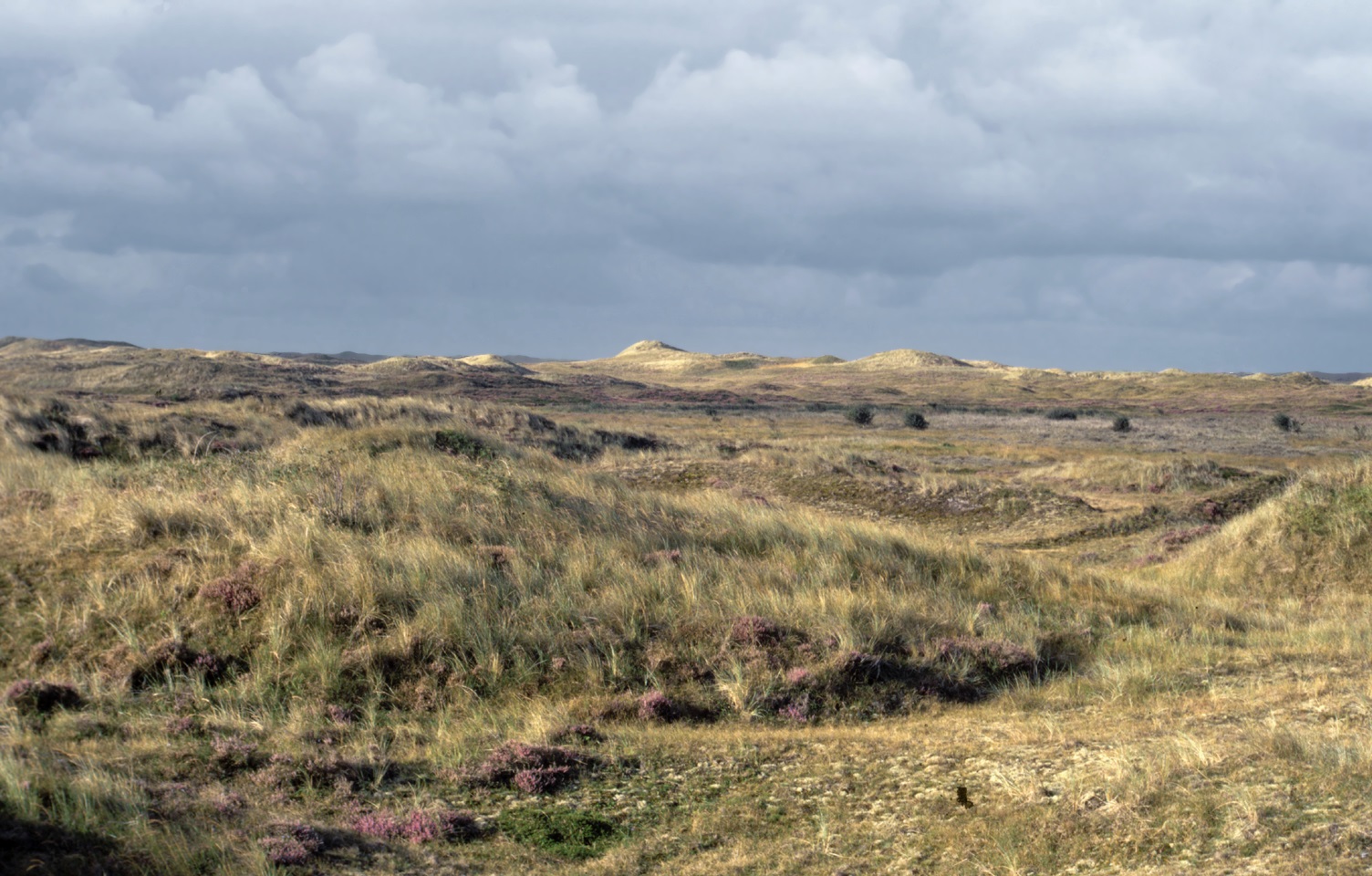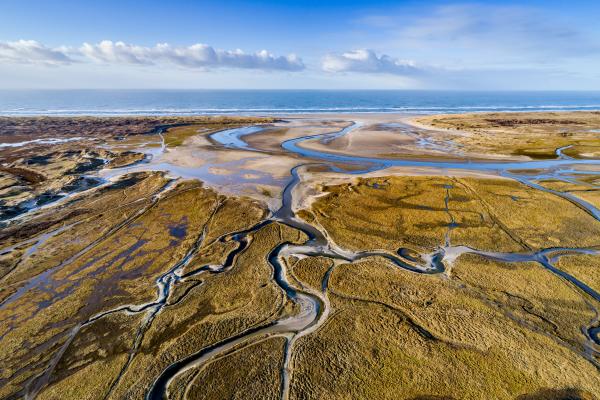Province(s)
Status
Surface
Landscape
A large dune area full of variety
Nowhere in the Netherlands do you see so much variety in landscapes as on Texel. The island is often seen as 'the Netherlands in miniature'. You will find all types of nature that you also find in the Netherlands, and even more. Mudflats, beach, dunes, salt marsh, polder, and forest are all within walking and biking distance. Each with its own beauty and richness of plants and animals. As soon as you arrive, you see vast sandy beaches and dunes that transition into meadows and forests. The nature reserves on the island blend beautifully into each other. Walk through the dynamic salt marshes of De Slufter, which are regularly flooded by the sea. Or bike over the quiet polders where you can see the true Texel sheep grazing. Explore on your own or join a guided excursion. With about 350 kilometers of bike and walking paths, you will always discover something new.
The game of nature
The blond dunes of Texel are full of life. There is a continuous spectacle between wind, sand, and water. Nature molds and creates a dynamic landscape where many special animals and plants find their place. This dynamism of the landscape is important for the formation, renewal, and protection of the dunes. In the dune landscape on Texel, you will find all kinds of dunes, from nascent sand dunes to gray dunes with special vegetation.
On sandy plains such as the Hors, new dunes begin to form. New plants cling to small sand mounds and in turn attract insects, butterflies, and birds. Gradually, the sandy dune landscape transitions to white dunes, covered with marram grass, and to unique gray dunes, where you can find countless plant and animal species. When you look from a dune top over the dunes, you see the natural progression and can even look to the inner dune edge, where in summer, heather turns the fields purple.
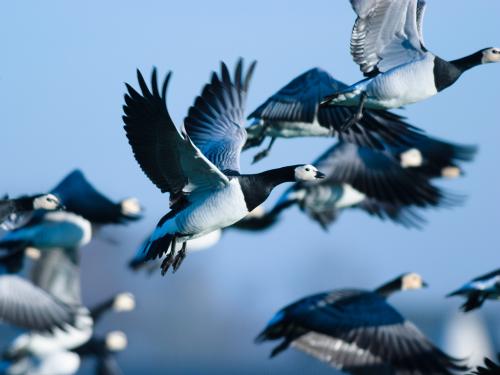
Experience the bird migration
View of the Spoonbill
With its spoon-shaped bill, long wading legs, and white plumage, the spoonbill is the symbol of National Park Dunes of Texel. In several places, you can regularly see spoonbills foraging. There are three breeding colonies on the island: in De Geul, De Muy, and De Schorren. From the viewpoint in De Geul, on the side of the Mokbaai, you have a good view of the spoonbill colony that resides there.
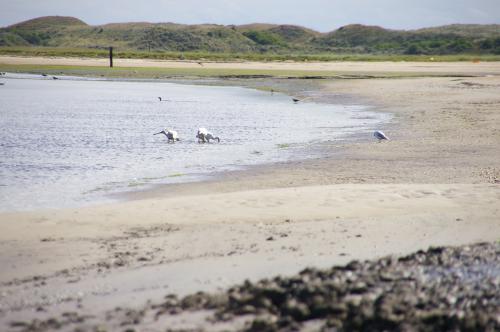
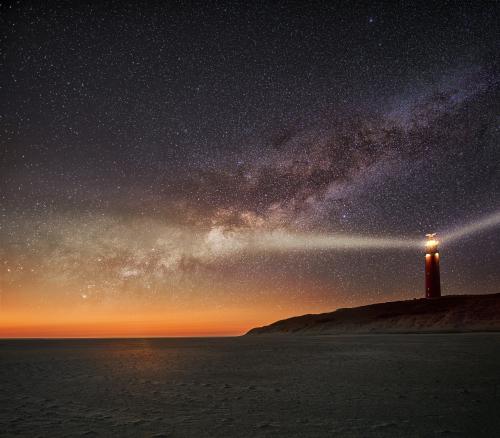
Looking in the dark
Texel is one of the few places in the Netherlands where it is truly dark. Find a spot in the dunes and settle in on a beautiful, cloudless evening. The Observatory at Ecomare also regularly organizes viewing evenings where you can look at the stars through the telescopes of Volkssterrenwacht De Jager.
Highlights
Discover the quirky nature reserve the Slufter or
climb the highest point
Do you want to visit the park?

Do you want to know more about National Park Dunes of Texel?
Discover all the current information on the park's website. From the activity schedule and walking routes to contact details and more.
